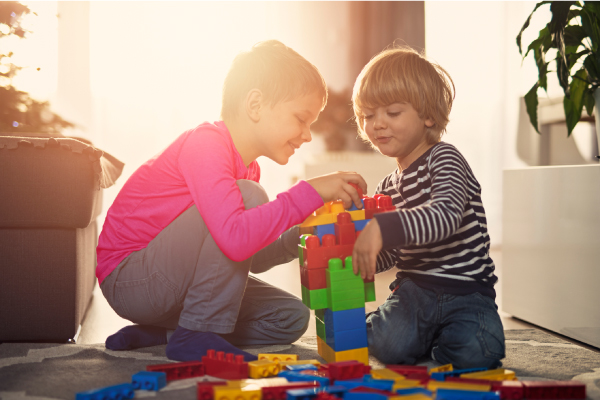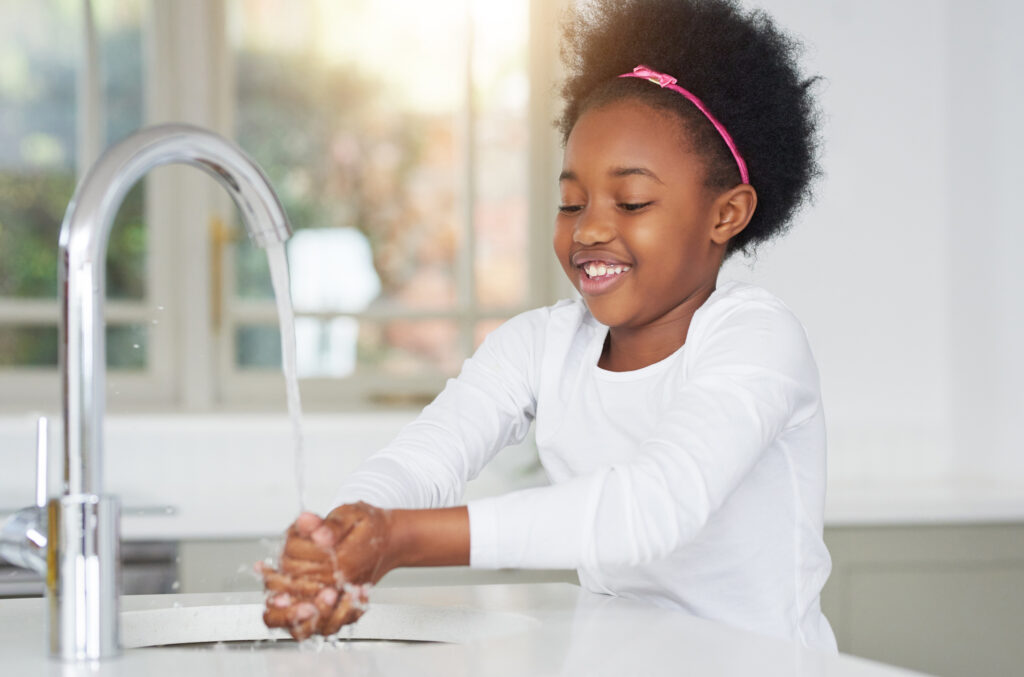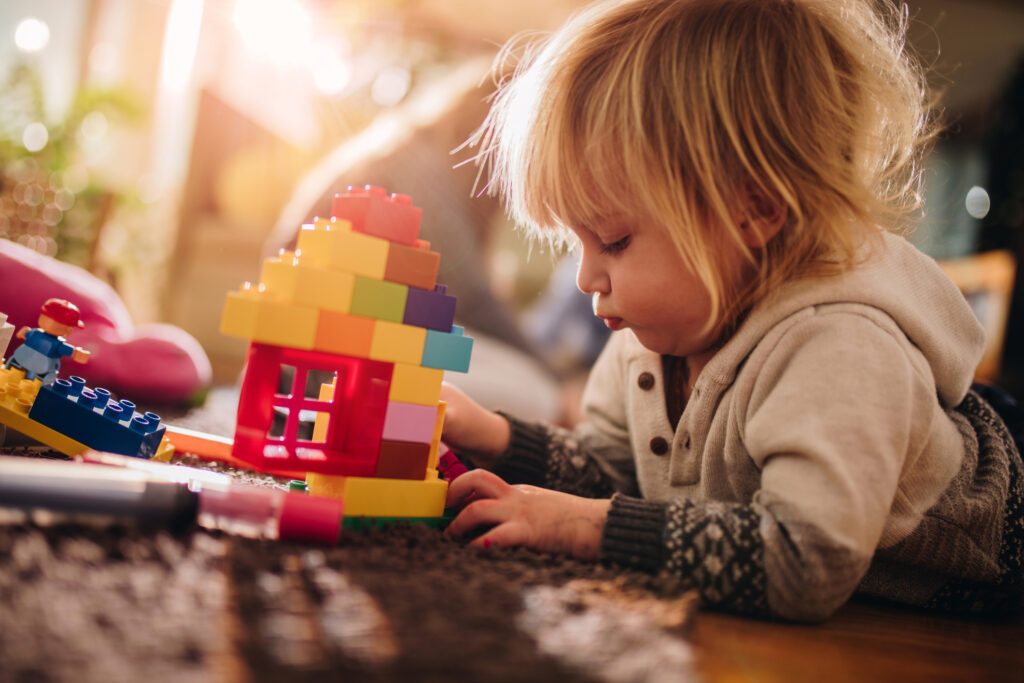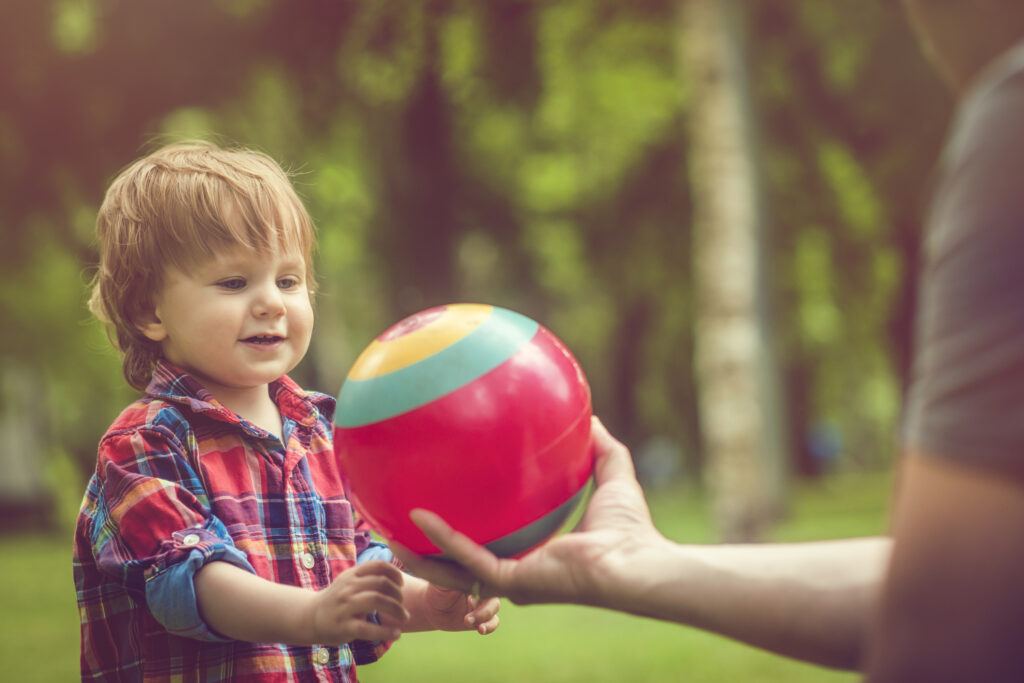Essential self-help skills for toddlers

Discover how your centre can help hone essential self-help skills in toddlers.
Self-help skills are the skills that babies, toddlers and young children learn as they make sense of the world around them. Developing self-help skills, sometimes called self-care skills, allows young children to become more independent. These skills range from learning to move independently, eating their meals and getting themselves ready to assist with small chores around the house.
Toddlers learn a wide range of self-care skills. Some learn them quickly, while others need to practice them repeatedly. Encouraging self-help skills in toddlers is a highly-rewarding task for parents, but despite their best efforts, children can have trouble learning and practising them. Childcare centres can assist parents in developing essential self-help skills among children with the help and support of trained teachers and staff.
Main essential self-help skills
Even though toddlers need a variety of skills to become independent, there are three main areas that parents and teachers should focus on during the early years of a child.
Self-feeding
Independent feeding skills make a huge difference in a child’s life. As children move on to solid foods, they can start with the basics. From picking up finger foods to using child-sized utensils and their own plates, having a child feed themselves gives the parents a bit of breathing space. Self-feeding also includes drinks. Using bottles and sippy cups independently before moving onto open-top tumblers and pouring drinks themselves are all important tasks.

Dressing and grooming
Getting children dressed can be a constant battle for parents, but giving children some autonomy in these situations can help immensely. There are a few factors to consider in the learning process. Learning to pull socks off is a natural first step but putting them back on is a momentous occasion. From there, a child can start dealing with sleeves, fasteners and zips. As older infants gain the confidence to dress themselves with minimal assistance, the same routine in the morning often goes a lot more smoothly.
Hygiene and toileting
Washing their hands independently and helping clean themselves in the bath are two good places to start. This is also around the time that most people begin toilet training. In the beginning, parents typically take the lead in wiping afterwards, cleaning the toilet seat and helping children to wash their hands. But these are skills children will need to develop before starting primary school.
The importance of these essential self-help skills for toddlers
Aside from the natural benefit of toddlers growing up and becoming more independent, there are noticeable benefits when we encourage self-help skills.
Boosts confidence
Learning new life skills or how to complete a new task is a great feeling. The sense of achievement grows, whether it’s putting shoes on for the first time or picking their outfit for the day. As children learn new skills, their confidence also grows. They see that they’re capable, and it gives them the confidence to try other new things. They might not always succeed, but this willingness to try will drive them onwards and upwards.

Helps build self-identity
Identity is something that many people struggle with in life, but the creation of a positive self-identity starts very early. Toddlers form opinions of who they are by what they do and what they’re told. If they’re encouraged to try new things, and they can see themselves learning and succeeding, it will shape them into having a positive self-identity. This can have a substantial impact on their lives, including emotional, social and even physical development.
Independence
Independence is a massive part of growing up. While babies are entirely dependent on their parents for most aspects of life, as they get older, they start to do more and more for themselves. Learning self-care skills is the first step in creating an independent life—after all, parents can’t go to school with their children, so they’ll need them sooner or later.
Ways childcare centres can help develop essential self-help skills
Parents, family members and teachers play an essential role in a child’s life. Teachers and staff in childcare centres must collaborate with the parents and families by discussing a child’s progress when it comes to self-help skills. It’s helpful when childcare services are on the same page as parents to ensure continuity when children are left in their care.
Dress-up
Aside from morning and bedtime dressing routines, childcare centres can participate in honing a child’s dressing abilities, particularly when they have a wardrobe with various costumes. From fantasy and fairytale costumes like knight armour, princess dresses and fairy wings to professional or workplace uniforms like a doctor, soldier or firefighter, dress-up during playtime can be a fun and creative way to develop this self-help skill.
Using utensils and eating independently
One of the best ways to encourage children to become more self-reliant is during snack breaks and lunchtime. Teachers get the chance to encourage children to eat on their own, whether it be finger foods or meals that need utensils. Peeling fruit during snack time can also be a practical and valuable exercise.

Visual schedules and routines
Although children tend to do things on their own, they often find themselves following several schedules at day care. Simple things, from the times snacks are provided to the process of sitting down quietly to listen to a story all add up to understanding the procession of tasks. Following an easy and straightforward schedule prepared at day care can be good training for children to learn how to be punctual and responsible.
Learning through play
The attention span of a toddler can be challenging to win over. It is not an easy task to capture a child’s attention and keep them focussed. This can create a minor setback in teaching them new self-care skills, but with the help of your childcare centre’s trained teachers who have mastered the art of teaching skills through play, this can be turned around for the good.
Whether it’s working on counting, fine motor skills or something else, there are plenty of creative and practical ways to make these tasks and practices fun. One of the best ways of teaching through independent play is by using arts and crafts.
Capture images and videos of children at your centre practising these essential self-help skills with our teacher platform, Playground, to share with parents to ensure they never miss a moment.

